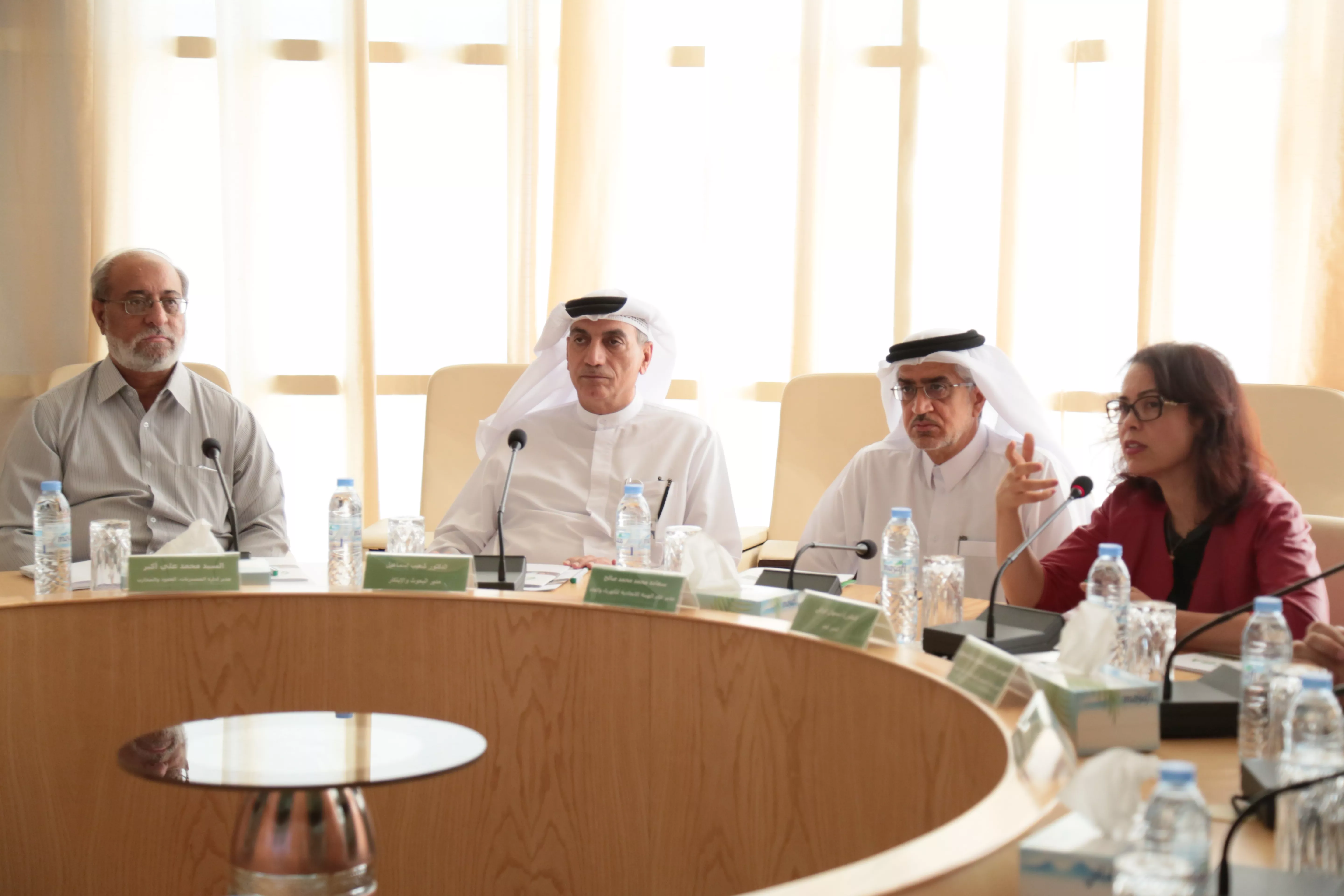FEWA delegation visits International Center for Biosaline Agriculture to talk collaboration
2 August 2016
A delegation from the Federal Electricity and Water Authority (FEWA) headed by Mr. Mohammed Mohammed Saleh, Director General, visited today the International Center for Biosaline Agriculture (ICBA) to discuss prospects for collaboration.
During the visit, the delegation was briefed about the Center’s research efforts in such areas as natural resources management, climate change adaptation, crop productivity and diversification, aquaculture and bioenergy, and policy analysis in marginal environments.
The delegation also learnt about the Center's activities to optimize water use for agriculture in marginal environments, while maintaining or improving production. Scientists at ICBA work on a wide range of solutions to reduce losses and maximize use of resources (e.g. agriculture with saline water, integrated aquaculture-agriculture systems).
Dr. Ismahane Elouafi, Director General of ICBA, said: “Since its establishment in 1999, our Center has placed special emphasis on integrated natural resources management solutions in marginal environments. One of the key research areas is optimization of water use in agriculture and use of non-conventional water resources such as brine and treated wastewater for agricultural purposes.”
During the visit, the delegation also toured ICBA’s research facilities, including experimental fields on date palm, Salicornia, the Integrated Aqua-Agriculture System, the Soil Museum, greenhouses and net-houses, and the SCADA system.
Mr. Mohammed Mohammed Saleh said: “We are impressed by the scope of research expertise and activities at ICBA. So we look forward to collaboration with the Center in different areas, including water use efficiency.”
Scientists at ICBA study, among other things, a system for sustainable use of brine to grow aquatic species and halophytic plants for forage and biofuel production. This system is scalable and can be applied to small-scale water treatment units used in the UAE, as well as in large-scale desalination plants used in the Gulf region. These integrated systems balance the need for energy and water with the production of food, thus increasing the resilience of the overall system while at the same time providing a variety of nutritional sources.











